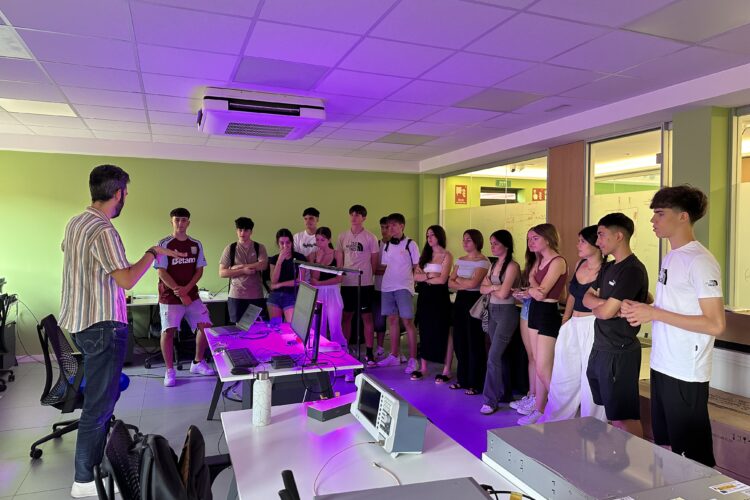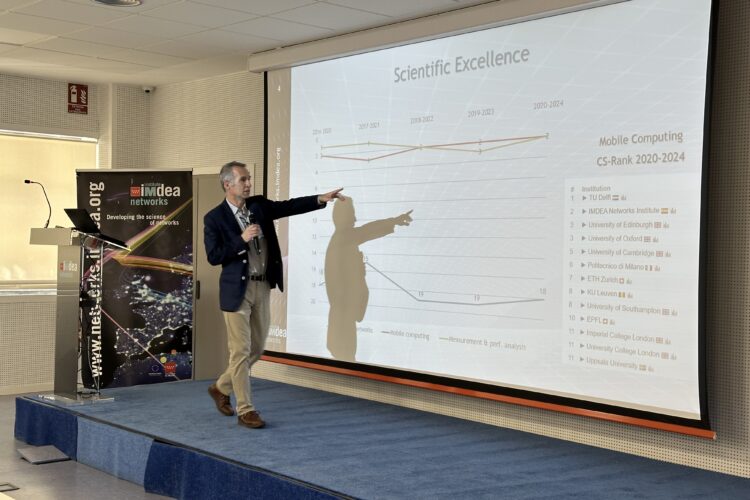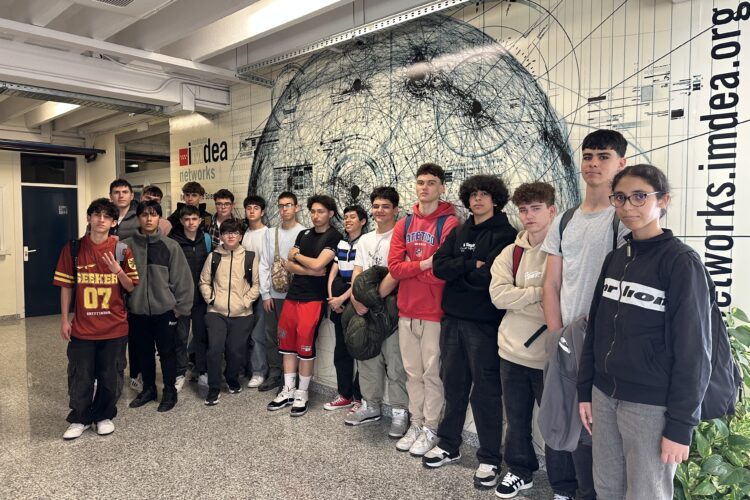IMDEA Networks

News
Social Probing: indirect surveys to better understand society
How can we understand what a society thinks without relying on traditional surveys that require large samples and significant investment?...
Read more arrow_right_altIMDEA Networks opens its laboratories to students for a day of scientific outreach and technological challenges
IMDEA Networks welcomed a group of 54 secondary school students from Colegio Amanecer (Alcorcón, Madrid), who had the opportunity to...
Read more arrow_right_altIMDEA Networks receives the ‘Best Student Paper Award’ for its next-generation AI for mobile traffic
Researchers from IMDEA Networks have received the prestigious Best Student Paper Award for their work “A scalable DNN (Deep Neural...
Read more arrow_right_altResearch co-led by IMDEA Networks discovers a privacy abuse involving Meta and Yandex bridging persistent identifiers to browsing histories
An international research collaboration between IMDEA Networks’ Internet Analytics Group, headed by Narseo Vallina-Rodriguez, Prof. Gunes Acar (Radboud University, NL),...
Read more arrow_right_altIMDEA Networks drives Digital Innovation at Horizon Europe Cluster 4 Info Day
On 22 May, IMDEA Networks, in collaboration with the Centre for the Development of Industrial Technology (CDTI), organised the Horizon...
Read more arrow_right_altENABLE-6G concludes with key innovations in AI, Privacy, and Network Efficiency opening up 6G capabilities
The NextGeneration EU-backed partnership ENABLE- 6G, dedicated to unlocking the potential of next-generation mobile networks, has officially concluded, marking a...
Read more arrow_right_altIMDEA Networks leads the TUCAN6-CM project to promote more sustainable, intelligent, and resilient 6G networks
IMDEA Networks is leading the TUCAN6-CM project, an initiative funded by the Regional Government of Madrid that aims to transform...
Read more arrow_right_altIMDEA Networks' work on distributed inference in mobile networks wins Best Paper Award at IEEE INFOCOM 2025
IMDEA Networks has received the Best Paper Award at the international conference IEEE INFOCOM 2025 (taking place this year in...
Read more arrow_right_altAristide Tanyi-Jong Akem receives the 2025 Best Doctoral Thesis Award from the IEEE Spain Signal Processing and Communications Joint Chapter Awards
Researcher Aristide Tanyi-Jong Akem has been awarded the 2025 Best Doctoral Thesis Award by the IEEE Spain Signal Processing and...
Read more arrow_right_alt18 students explore the world of research at IMDEA Networks through the 4ºESO+Empresa Program
Over two days, on April 8 and 9, 18 students in their fourth year of secondary education took part in...
Read more arrow_right_alt











Recent Comments